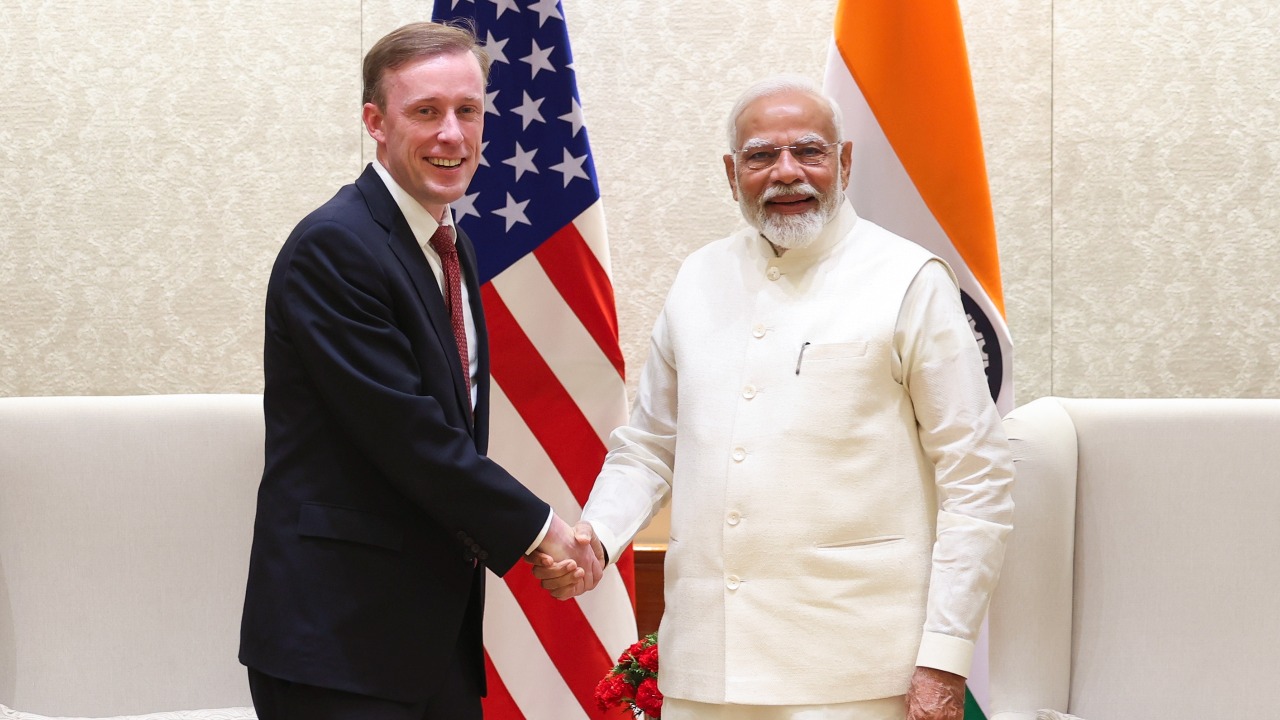Stranded Indian Workers in Libya: Government's Efforts for Repatriation

The plight of migrant workers has once again come into the spotlight as at least 16 Indian laborers, predominantly hailing from Uttar Pradesh and Bihar, find themselves trapped in dire circumstances in Libya. These individuals, like many others from economically struggling regions in India, were lured by the promise of well-paying jobs that could help transform their financial conditions and support their families back home. They were assured lucrative employment opportunities at a cement factory in Benghazi, a major city in Libya, which would allow them to send money back to their families and improve their quality of life. However, this promise soon turned out to be a hollow illusion. Upon their arrival in Libya, it became evident that they had been deceived. Instead of entering the country as legitimate workers, these individuals arrived on tourist visas, leaving them without the proper work documentation required to ensure legal employment and protection under Libyan law.
For the past four months, these workers have been subjected to extremely harsh and exploitative conditions. Deprived of the basic rights and privileges they were led to expect, they have had to endure long working hours in difficult and often dangerous conditions. Despite their labor, they have not received the wages they were promised, leaving them in a state of financial despair. Their living conditions have been equally deplorable, marked by inadequate shelter, insufficient food, and lack of access to healthcare. Stranded in a foreign land without the means to return home, their situation underscores the vulnerability of migrant workers who are misled by unscrupulous recruitment agents.
The Indian Ministry of External Affairs (MEA) has since intervened in this troubling situation. The Indian Embassy in Tripoli, Libya’s capital, has been actively working with local authorities to secure the necessary exit permits for these workers so they can return to India. However, the process has been complicated by their undocumented status, as they entered Libya without the proper visas and work permits. While the embassy’s efforts are ongoing, progress has been slow due to bureaucratic hurdles and the challenging environment in Libya, a country that continues to grapple with internal instability and governance issues.
Despite these challenges, the Indian Embassy has been providing critical support to the stranded workers. With the help of the local Indian community in Libya, the embassy has ensured that the workers receive essential supplies such as food, clothing, and other necessities to help them survive during this difficult period. This humanitarian assistance has provided a lifeline for the stranded workers, who would otherwise be left entirely to fend for themselves in a hostile and unfamiliar environment. Additionally, the embassy’s involvement has brought much-needed attention to the workers’ plight, prompting Indian authorities to address the broader issue of fraudulent recruitment practices.
This situation sheds light on a much larger and deeply troubling problem: the exploitative practices of fake recruitment agencies. These agencies prey on vulnerable and often desperate individuals in rural India, particularly in states like Uttar Pradesh and Bihar, where unemployment rates are high, and opportunities for decent livelihoods are limited. By offering the allure of high-paying overseas jobs, these agencies manipulate and deceive their victims, charging exorbitant fees for arranging travel and employment that ultimately turn out to be fraudulent. Once abroad, workers often find themselves trapped in exploitative conditions, unable to seek legal recourse due to their undocumented status. This cycle of exploitation leaves them not only financially destitute but also emotionally and physically drained.
The stranded workers in Libya are just one example of the many Indian migrants who have fallen victim to such scams. Their stories serve as a grim reminder of the urgent need for systemic reforms to address this issue. First and foremost, there is a pressing need for stricter regulation of recruitment agencies in India. The government must enforce stringent licensing requirements and closely monitor these agencies to ensure they operate transparently and ethically. Agencies found guilty of fraudulent practices should face severe penalties, including criminal charges, to deter others from engaging in similar activities.
Furthermore, public awareness campaigns are crucial to educate potential migrants about the risks associated with overseas employment offers that seem too good to be true. By providing accurate information about the legal requirements for working abroad and the risks of falling prey to fake agents, these campaigns can empower individuals to make informed decisions. Non-governmental organizations (NGOs) and community groups can play a vital role in disseminating this information, particularly in rural areas where access to such resources is often limited.
In addition to preventive measures, the government must also strengthen its support systems for Indian workers who face difficulties abroad. Embassies and consulates should be equipped with adequate resources and personnel to assist distressed workers promptly and effectively. Establishing a centralized helpline for migrant workers and their families can also provide a direct channel for reporting grievances and seeking assistance. By fostering stronger collaboration between Indian authorities and host countries, efforts to protect the rights of Indian workers can be significantly enhanced.
Another critical aspect of addressing this issue is the rehabilitation and reintegration of returning workers who have suffered exploitation. Many migrant workers return home in a state of financial ruin, often burdened with debt incurred to pay recruitment fees. The government and civil society organizations must work together to provide these individuals with financial support, skills training, and employment opportunities to help them rebuild their lives. By investing in their well-being and economic empowerment, India can ensure that returning workers are not left to struggle in silence.
The case of the stranded workers in Libya also highlights the need for international cooperation to combat human trafficking and labor exploitation. Governments, international organizations, and advocacy groups must work together to establish stronger legal frameworks and enforcement mechanisms to hold exploitative employers and traffickers accountable. By addressing these issues on a global scale, the international community can help create a safer and more equitable environment for migrant workers.
The harrowing experience of the 16 Indian workers stranded in Libya serves as a stark reminder of the vulnerabilities faced by migrant laborers and the urgent need for systemic reforms to protect their rights and well-being. While the Indian government’s efforts to bring these workers home are commendable, this incident underscores the importance of addressing the root causes of labor exploitation and ensuring that no one else has to endure such suffering. By taking decisive action against fraudulent recruitment agencies, raising public awareness, and strengthening support systems for migrant workers, India can pave the way for a more just and equitable future for its citizens.
Posted By: Shraddha
.gif)
.gif)





%20(600%20%C3%97%20386px)%20(600%20%C3%97%20329px)%20(500%20%C3%97%20281px)%20(450%20%C3%97%20281px)%20(450%20%C3%97%20253px)%20(386%20%C3%97%20238px).jpeg)
%20(600%20%C3%97%20386px)%20(600%20%C3%97%20329px)%20(500%20%C3%97%20281px)%20(450%20%C3%97%20281px)%20(450%20%C3%97%20253px)%20(450%20%C3%97%20250px).jpeg)
.jpg)
.jpeg)